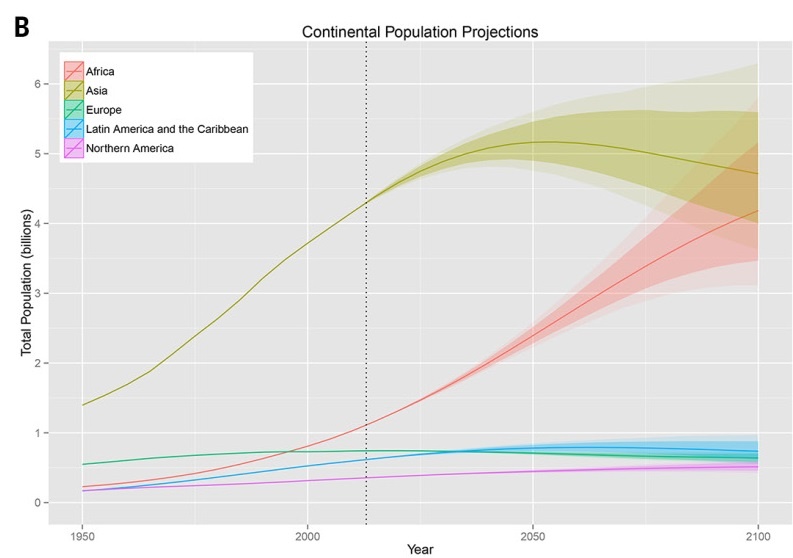Can you compare predictions for human population growth in developed countries versus developing countries? And why is it difficult to predict the growth of Earth’s human population?
1 Answer
We are headed towards 10 billion by 2100, with what happens in Africa being the wildcard.
Explanation:
Population forecasts should be taken with a certain "gain of salt" as they are notorious for changing about every 5 years and so they are almost always wrong!
Having said that, about 7 years ago, the UN thought that global population would peak at about 9 billion. The latest, 2014, estimate for global population is up to around 10-12 billion by 2100 (no sign of peaking) with what happens in Africa being the major unknown. Populations in the developed world are pretty much flat and not expected to grow, while Asia (China, India, etc) will likely peak around 2050.
Under the current estimates, African populations could keep growing with no sign of a peak before 2100. 
A lot of factors make this a challenging exercise, and much has to do with social behaviour. Some factors include:
- how many people move to cities (moving to cities usually lowers birth rate)
- access to family planning and contraceptives - when access is high, this tends to lowers birthrate.
- access to modern healthcare, which lowers death rate and keeps population high.
- degree to which women have the "right" to control their own reproduction - in male dominated societies, population tends to stay high.
- female access to higher education - as more women get higher education they tend to have fewer children (provided that the factor above is not a problem).
- related to the above, business opportunities in the local community. Research has found that educated women will often start small business if there are opportunties and thereby delay or reduce births.


